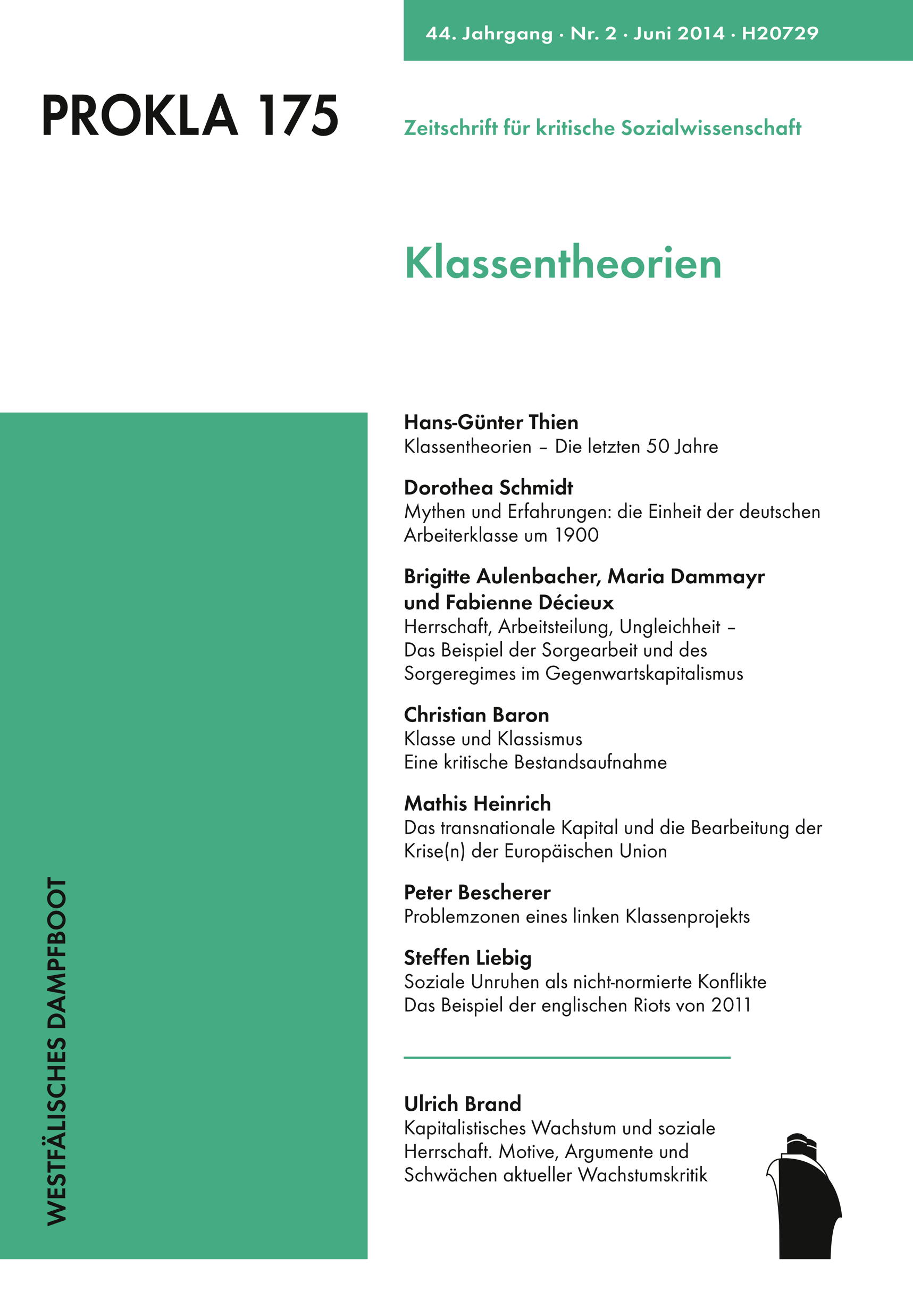Mythen und Erfahrungen: die Einheit der deutschen Arbeiterklasse um 1900
DOI:
https://doi.org/10.32387/prokla.v44i175.170Keywords:
Klassentheorie, KlassengesellschaftAbstract
In the last decades, farewell to the working class has been celebrated repeatedly. This perception normally goes hand in hand with the idea that in contrast to the socially fragmented present, a unified working class existed before 1914. I want to show that the German experience contradicts this. Two exemplary fields of ideological battles as well as concrete actions are presented: 1) the harsh rejection of specific demands of the proletarian women by the social democratic party, and 2) the struggles of the workers for higher wages and shorter working hours, where a coexistence of radically different strategies by workers in distinct branches, according especially to varying company sizes, could be observed. Even if the working class of this time was not unified in a way the left leaders wanted to see it, main parts of it achieved remarkable success. As a consequence, today’s over and over noticed weakness of the working class is not to be explained principally by a lack of unity, but by other circumstances.






